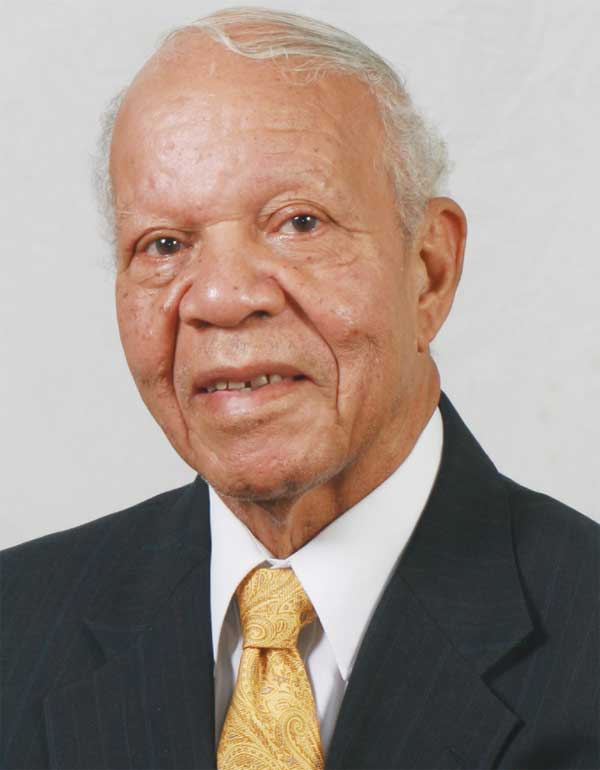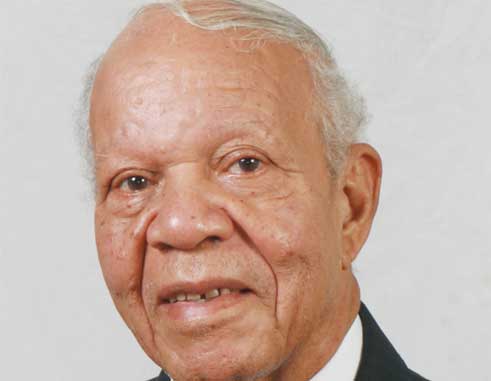
AT the conclusion of Part 1, the proposals outlined in the Budget Address 2005-2006 were presented. The Minister of Finance went on further to expand on how this new strategy can be implemented and the following statement was made:
‘’Honourable Members will recall the debate and passage of the new Water & Sewerage Act, which will provide the platform for the quality of service and the protection and management of the resource base to attract private sector investment. In pursuit of this latter objective, the Government has decided to pursue a public-private sector partnership for WASCO that will permit the Government to remain on the Board of Directors as the protector of the public interest, but will also allow for the divestment of the majority shares of WASCO. We have chosen this option for the following three main reasons:
1. Our experience with the privatization of LUCELEC;
2. Current international experiences in water utility management that have proven to be innovative and sustainable; and
3. The current attitude of the international investment community, who are reluctant to risk their own capital resources in exchange for an operating contract to manage a utility.
The scheme of divestment would involve the transfer of ownership of assets such as pipes, pumps, buildings etc., to the new operator, instead of allowing the operator to utilize assets owned by the Government.
One exception would be the Roseau Dam, which will remain in the public domain with the operating company being granted rights and responsibilities associated with its operations and the safe maintenance of the reservoir.
Already Mr. Speaker, discussions have been held with prospective national, regional and international investor groups. These discussions have been facilitated by the World Bank. The management of the National Insurance Corporation has expressed an interest in possible participation. Given the commitment of our international and regional partners, we are confident that the process of commercialization of the water sector, along with the necessary oversight of Government, will ensure stability and viability in the provision of this vital resource to our citizens.’’
I firmly believe that this was the right track for WASCO and the statement in the next financial year could have provided a platform for change in WASCO.
In the Budget Address of 2006-2007, which was the year of the general elections, the Minister of Finance had this to say about WASCO:
The legislative framework has been completed with the passage of the new Water and Sewerage Act, and the establishment of the Commission. The Water Resource Management Unit will be established at the Ministry of Agriculture, subsequent to the passage of the Estimates of Expenditure in this Honourable House.
The only action left on the legislative agenda is the coming into force of the Act, which will be undertaken by the Honourable Minister responsible for Public Utilities, following the regularization of some administrative matters.
But Mr. Speaker, the most important aspect of this transformation is about to unfold. The Cabinet of Ministers has agreed to the process by which there will be a public-private sector partnership in the management and operations of the Water Utility. This public-private sector partnership will be very similar to what obtains in LUCELEC, and will build on what has been a very successful experience.
Mr. Speaker, we cannot allow WASCO to lurch from crisis to crisis. Government cannot continue to borrow and borrow for WASCO. It is simply unsustainable. Presently, WASCO’s total debt liability stands at $112.3 million. The Government bears responsibility for this debt and meets all payments on behalf of WASCO.

Cabinet has endorsed the following:
1. The establishment of the Public-Private Partnership Company to manage the affairs of the water sector;
2. Twenty percent of the ownership of the Public-Private Partnership Company will be held by the Government of Saint Lucia;
3. WASCO will remain as the vehicle through which the Government of Saint Lucia will own equity in the Public-Private Partnership. The Partnership Company will also be entitled to the right of use of the Roseau Dam through an evergreen service agreement. In other words, the ownership of the Roseau Dam will remain with the Government of Saint Lucia. So too will all catchment areas and other natural assets be owned by the Government of Saint Lucia.
4. The Ministers responsible for Public Utilities and Agriculture will, under the provisions of the Water & Sewerage Act, issue licences to the Partnership Company for providing the Water Service, as well as an abstraction licence;
5. The operator will be a member of the investment consortium, which in turn will provide solid performance guarantees that are either directly or indirectly provided by the operator; and
6. The Board of the Partnership Company will comprise five executive members. The Company will also be expected to manage procurement in the most open and transparent manner.
Cabinet has agreed to the engagement of a specialized public relations firm to carry out a public sensitization programme to explain the proposed changes to consumers. Importantly also, the Government wants to ensure that the employees of WASCO are engaged in dialogue so that their concerns are fully addressed.
Mr. Speaker, I know that some members of the public may be skeptical about this Public Private Sector relationship and in particular, there will be some concerns regarding its impact on poor and marginalized groups. It is the intention of Government to ensure that a mechanism is put in place to provide for persons who are in need of special assistance. To meet this objective, Government has already commenced discussions with the World Bank Group for the provision of a facility that would allow for the provision of grants to the poor and marginalized groups to access connections to the water supply.
I know too that there are fears that the new entity will increase water rates. Two points must be made. Firstly, Government has made it absolutely clear that there can be no increases in tariffs until and unless there is significant improvement in the delivery of water. Indeed, it is specifically agreed that there will be no increases for the next three (3) years. Secondly, tariffs will be set by a regulatory authority.
The new company will not be allowed to increase its tariffs at its own choosing. Mr. Speaker, it is the Government’s view that the process on which we are embarking will bring some stability to the supply and provision of safe and wholesome water to the majority of our citizens in the entire country.’’
I firmly believe that this was the right model for WASCO and should have been pursued. The St Lucia Labour Party lost the general elections right after this Budget Address and was not able to implement these proposals.
Sir John Compton in his last Budget Address in 2007 spoke briefly about WASCO, he said the following:
‘The institutional requirements of the water sector have not kept pace with demand hence the poor delivery of service which is currently experienced throughout the island. The answer suggested by the World Bank is one of “privatization”.
This by itself, without a proper management and institutional framework will not solve the problem and the chronic lack of finance always experienced by the Water and Sewerage Company (WASCO), is only one of the problems and money alone, without proper management, will not be the answer’’
The sagacity of Sir John was clearly evident, you need a financially stable WASCO and a strong management team for this company to succeed.
In the Budget Address of 2009-2010, Hon Stephenson King announced the following:
‘’Government’s plans for WASCO Including possible privatization Madam Speaker, the Government of Saint Lucia in March of this year took the decision to abort the process towards the privatization of WASCO and reject the bids submitted for the international investor to manage and own forty per cent of the water company. This was a result of legal challenges to the bidding process by one of the bidders to the transaction’’
The following year Hon. Stephenson King announced that Cabinet decided to maintain WASCO as a 100% state-owned enterprise for the foreseeable future and pursue recapitalization and reorganization of the company with the possibility of entering into a management contract.
This recapitalization never occurred, there was no attempt at reorganization and WASCO limped along for the next four years. Hurricane Tomas further compounded WASCO’s woes with significant damage to its infrastructure, loss of revenue during the period after Tomas and additional cost to supply truck borne water. In the five years of the UWP Administration nothing of significance happened at WASCO.
In his Budget Address of 2014 -2015, Hon Kenny Anthony had this to say:
‘’Currently, the company is insolvent with total liabilities greater than total assets. This greatly impairs the company’s ability to raise much needed financing and, therefore, its capacity to invest in future assets.
The Government has given extensive assistance to WASCO over the years including:
i. The payment of principal and interest on outstanding loans of $106.6 million;
ii. Total advances of $19.0 million during the period 2008 to 2012 to assist with operating costs;
iii. A commitment of $7.0 million to assist in rural system improvements, of which $4.95 million has been disbursed;
iv. A sum of $3.1million to assist with the restoration of the John Compton Dam, with a commitment to mobilize a further amount; and
v. Payment of about $9 million in outstanding arrears to LUCELEC.
Given the current fiscal constraints, Government cannot maintain this level of assistance to WASCO. Every effort must be made to bring the company onto a more sustainable path’’
It is a most stunning statement given that WASCO is established under the Companies Act, and from my limited knowledge an insolvent company cannot trade. After all of this investment in WASCO over the last 18 years, the company is now insolvent. Looking back, I think the decision to saddle WASCO with a $ 40 million loan so early in its existence played a significant role in the company’s ability to effectively carry out its mandate. The effects of storm events have also to be factored.
Undoubtedly, Hon. Kenny D. Anthony as the progenitor, is very committed to see that WASCO does in fact become the entity it was hoped to be. I will strongly suggest that the model that was established in 2006, and abandoned by the last administration due to the legal challenges of a bidder, be once again placed in the front burner.
The truism is that the situation at WASCO has always been about finance and management in this Sir John’s last words on WASCO were correct. The reality is that adhocism has been the order of the day.














